 |
| Max and Sasha |
Have you ever noticed your cat drooling? While it might be more commonly associated with dogs, many cat owners have observed their cats exhibiting this curious behavior. There are many reasons a cat may drool ranging from contentment and relaxation to potential underlying health issues. Here are some common reasons why cats may drool:
Happiness or Contentment or Excitement and Anticipation: Some cats may drool when they are extremely relaxed and content, especially when they are being petted or are in a comfortable environment. They may also drool in anticipation of food or during playtime when excited.
Nausea or Motion Sickness: Cats may drool if they are feeling nauseous or are experiencing motion sickness, especially during car rides.
Dental Problems: Dental issues such as gum disease, tooth decay, or oral infections can cause pain and discomfort, leading to drooling. Any injury or trauma to the mouth, tongue, or throat can result in drooling as a response to pain.
CBD Oil from Hemp:
A Safe Choice for Your Pet
When to Consider CBD Oil for Your Pet
CBD oil from hemp can be especially helpful for pets with:
Anxiety and Stress: CBD has calming properties that may help alleviate anxiety and stress in pets.
Joint and Mobility Support: CBD's anti-inflammatory properties may assist in managing joint discomfort and supporting overall mobility.
Pain: Pain due to a health condition such as cancer, IBD, Pillow Paw or Stomatitis. CBD exhibits anti-inflammatory effects by interacting with receptors and pathways involved in inflammation. Inflammation is a common component of pain and by reducing inflammation, CBD may help alleviate associated discomfort.
CBD Helps Pete's Stomatitis
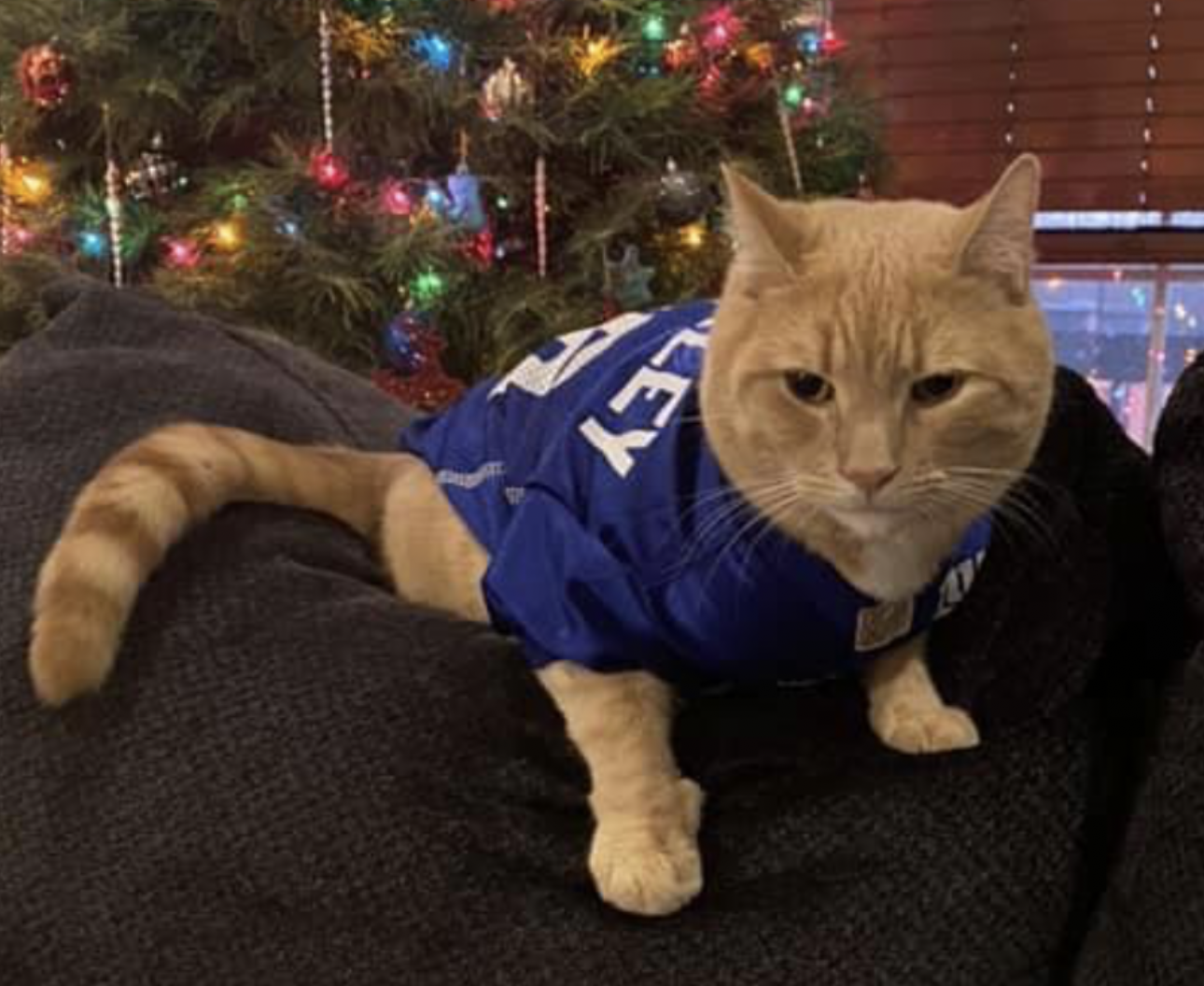
Pete
"I just wanted to thank you guys for your great service and great products. Our Vet was telling us that we were looking at a very expensive surgery and a full tooth extraction for Pete and that they didn’t know what was causing his stomatitis and it was the only thing they could do to fix it. The antibiotics they gave us weren’t working. Not only did you get me your products immediately, my cat seems to have made a full recovery in 2 weeks. The Vet didn’t tell us Stomatitis was an autoimmune disease, diet related or anything else. You and your website told me that and I believe it was your products (Immune Support Kit, Immune Harmony and Happy Paws Drops) and knowledge of a diet change that made the entire difference. My family can not thank you guys enough! Pete seems to be back to his normal self and we are just so thankful!" - Ryan, VA
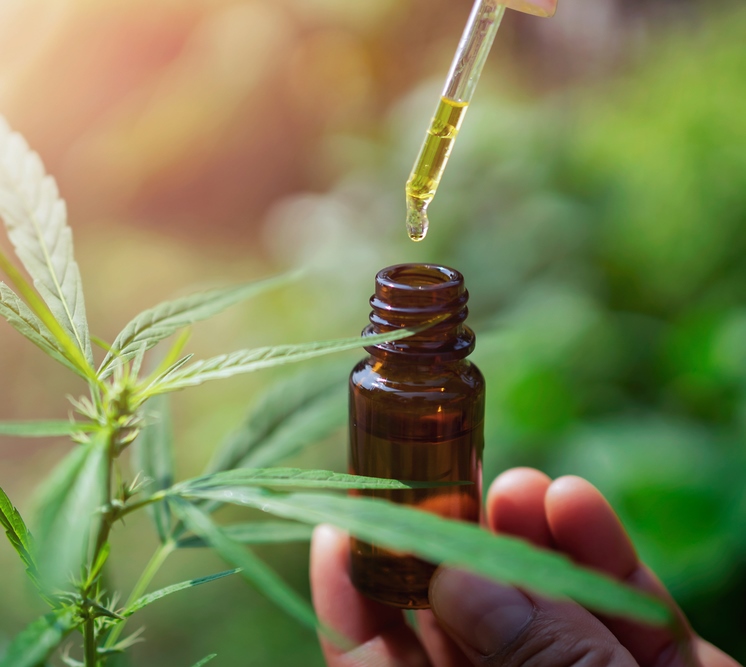
What To Look For When
Choosing A CBD Oil?
How The Hemp Was Grown & Cultivated:
Opt for CBD oil derived from organic hemp plants. Organic cultivation reduces the risk of exposure to pesticides and other harmful chemicals. Our hemp-derived Happy Paws Drops is naturally sourced from non-GMO hemp grown in Colorado where no pesticides, herbicides or chemical fertilizers were used.
Full Spectrum vs. Isolate:
Full-spectrum CBD contains a range of cannabinoids, terpenes, and other beneficial compounds from the hemp plant. This may enhance the overall effectiveness of the CBD oil. Happy Paws is a Full Spectrum CBD Oil containing CBD, CBG, CBN, and CBDA.
Third-Party Testing:
Choose products that undergo third-party testing for quality and potency. A "Certificate of Analysis" is an independent analysis by a third-party that shows the amount and type of cannabinoids in the CBD product as well as the level of THC contained in the product. Happy Paws Drops have a certificate of analysis showing purity, potency and cannabinoid ratios.
Look for CBD oil extracted using safe methods such as CO2 extraction. This method ensures a clean and pure end product without the use of harmful solvents. Happy Paws Drops are extracted using the CO2 extraction method.
Check the concentration of CBD in the product. The ideal concentration varies based on your pet's size, health condition, and the intended use. Happy Paws Drops are veterinary strength, contain 550mg per bottle and approx 18.3mg per ml. Compare to many pet products with less than 200mg per bottle. More concentrated means less drops to administer and often a much better value.
Added Ingredients:
Examine the product's ingredient list. Choose CBD oils with minimal additives and natural ingredients. Be cautious of products containing artificial flavors, colors, or unnecessary fillers.
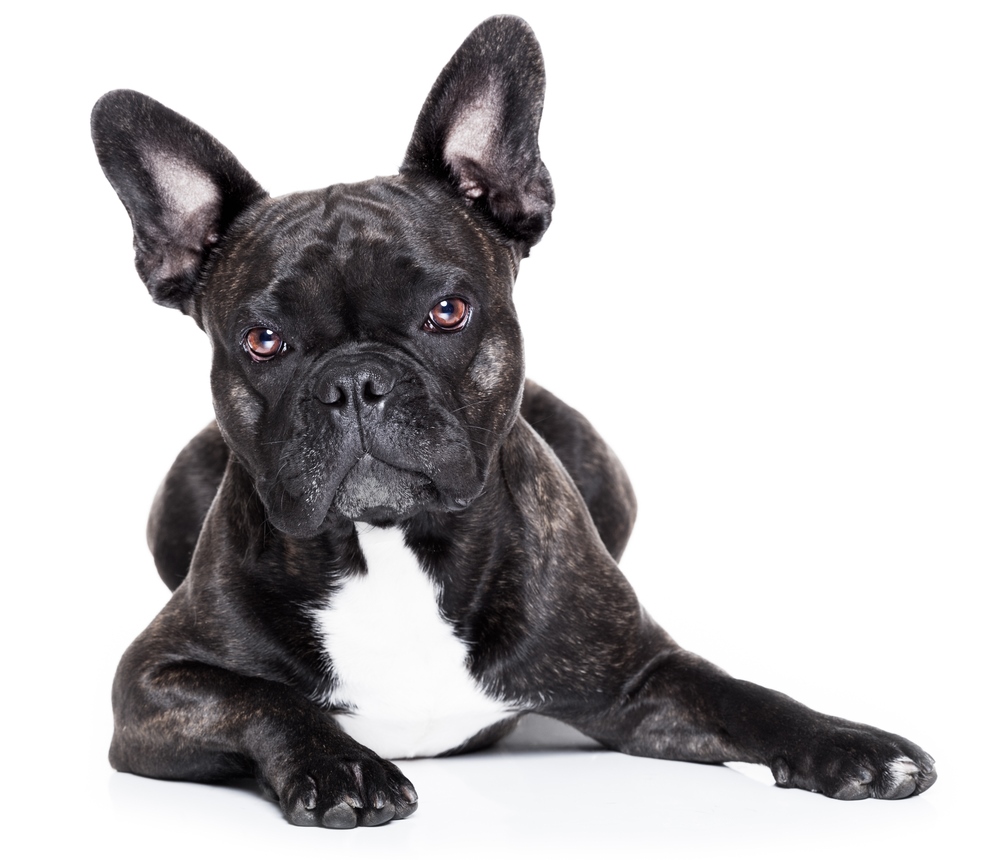
Understanding THC
And Its Effects on Pets
Feeling "Stoned": THC can induce a state of altered consciousness, leading pets to feel disoriented or "stoned."
Coordination Issues: Marijuana toxicity can affect your pet's balance and coordination, posing risks to their safety.
Lethargy: Pets may become unusually tired or sluggish due to the impact of THC.
It's crucial to recognize that the effects of THC on animals can be unpredictable and vary based on factors such as the pet's size, the amount ingested, and individual sensitivity.
Marijuana and Potential Benefits for Pets with Cancer
While marijuana should be approached with caution due to its THC content, studies suggest potential benefits for pets with cancer. THC, known for its antiemetic properties, may help alleviate nausea & stimulate appetite in pets undergoing cancer treatments. However, it's imperative to consult with your veterinarian before considering marijuana as a complementary therapy for your pet.
Happy Paws Drops are unrivaled in quality and can benefit your pet in so many ways.
What makes Happy Paws Drops so special?
Grown in Colorado on hemp farms utilizing stringent eco-farming practices
Proprietary CO2 extraction process uses a gentle, clean and scientifically designed process
Made with NON-GMO, all organic ingredients
Approximately 18.3 mg CBD oil per 1 mL
Contains full spectrum hemp oil with CBD, CBG, CBN, and CBDA
Independent laboratory testing for purity
Grown without pesticides, herbicides and chemicals in the USA
Veterinary Strength - The more concentrated the product (more mg per mL), the better the value and less drops you have to administer to your pet. Happy Paws contains 550 mg of CBD Oil. Compare the difference--many pet products contain only 100-200 mg per bottle.
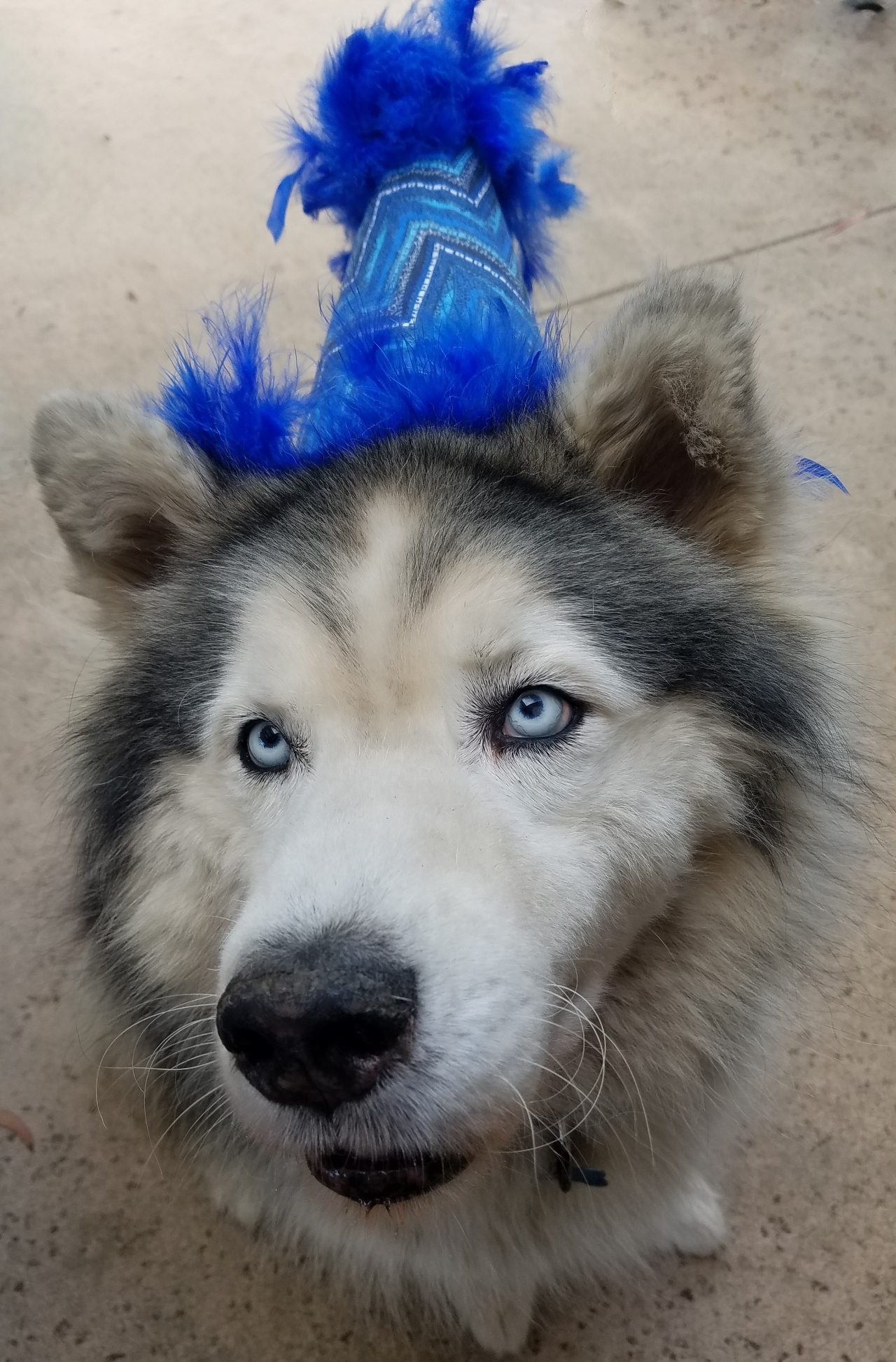
Malachi
Author: Susan Blake Davis, Pet Nutritionist
Original post: January 16, 2024
updated on: Febuary 5, 2024
Topaz started to have problems eating so his mom, Linda, took him to the vet. He was diagnosed with stomatitis. Here's what Topaz told us, "My name is Topaz. At the end of last year I got feeling so bad I couldn't eat - my mouth felt like it was on fire! My family was so worried about me and they took me to the vet. I was diagnosed with stomatitis. It was recommended I had all my teeth removed!!! That would have been devastating! The quote was over $2500. My "mom" is an Integrative Health Therapist - she knew nature had a much better way and searched all over the Internet. Wow, I'm so glad she found askariel.com!!!!! They helped save my gums - just by putting a few Silver sprays, Quent & NOT drops, with a little organic olive oil on my grain-free food that I relish. My food still tastes good, and my appetite is super :) My last Vet check went great - no more stomatitis, though they still need to treat my gums. And I need to be more active in my senior years. The Vet was shown a picture of what saved my gums. We totally want to keep this working, so we're sticking with the kind, encouraging experts at askariel.com." Linda, Ca.
Dear P.B.
Although it is possible that your cat may have some type of cancer in the back of the mouth (a disease that has no cure), I am hoping it is something else. You probably would have remembered if the doctor had said that your cat has a form of throat cancer. I suspect that the biopsy may have revealed a syndrome we see in a certain percentage of pure breed and mixed breed cats, called lymphocytic and/or plasmacytic stomatitis. Please call the doctor to get the name of the disease, for that can affect treatment and outcome.
It is essential to use immune support such as Power Probiotic for your kitty to feel better. Probiotics can help restore the natural flora in the mouth and throughout the digestive tract.
Let’s dissect the words describing this syndrome. Stomatitis is an inflammation or infection in the mouth. Ok, so far so good. Lymphocytic and/or plasmacytic is a descriptive term illustrating the type of inflammatory cells that are migrating to this inflamed area.
What causes this infection/inflammation to occur in certain cats and not others? We are not sure.
Some viral infections are suspected of increasing the cat’s susceptibility to this disease. Your cat should be checked for the Feline Immunodeficiency Virus (FIV or Feline Aids virus) and the Feline Leukemia Virus. I suspect your doctor has already done this. If not, get it done. The virus does not cause the disease but makes cats more vulnerable to the disease. Others speculate that certain cats (ones that are genetically predisposed), are having an exuberant response to antigens or foreign invaders in the mouth. The suspected culprits are the bacteria inhabiting the tooth roots of some of these cats.
The syndrome is first recognized in fairly young cats that have halitosis (very bad breath, trouble swallowing, lack of appetite, and sometimes gagging). Examination of the teeth and back part of the throat reveals areas of extreme inflammation. It looks (and I am sure feels) like the worst sore throat you have ever had your entire life.
How is this dealt with? If the cat is FIV or FeLV positive, steps should be taken to insure your cat stays indoors and does not expose other cats to the disease. Oral antibiotics and frequent dental cleanings will help keep the mouth in good shape. Although controversial, acupuncture, interferon and lactoferrin can be used to improve the condition of the cat’s lesions. Supplements that we have seen help include Not Drops and Power Probiotic If the cat is negative for these viruses, most veterinarians will use some type of strong immunosuppressive drug (like corticosteroids or others) to calm down the inflammation and analgesics to relieve the pain.
Although it may sound very extreme, sometimes full mouth extraction of the teeth is the only thing that will bring about relief and return the cat to a decent quality of life. I have seen several cases over the years that have completely resolve only by removing all of the teeth. Most veterinarians will only do this as a last resort, when all other therapies have failed after repeated attempts. I personally have been reluctant to recommend this procedure because it is difficult for the pet in the short term, expensive for the owner, and time consuming for the doctor. The long term success rate, however, leads me to believe that this may be the only thing that will save the cat from life-long pain and suffering.
"Thank you so much for everything. The love of my life, Pumpkin, would NOT be here today if it wasn't for you (and he is literally everything to me). He is now 9 1/2 years old, and still going strong. He STILL has not had to go to the vet once (aside from routine dental etc) and has had NO flare ups." Pumpkin uses the Immune Support Kit, Immune Harmony and Power Probiotic.
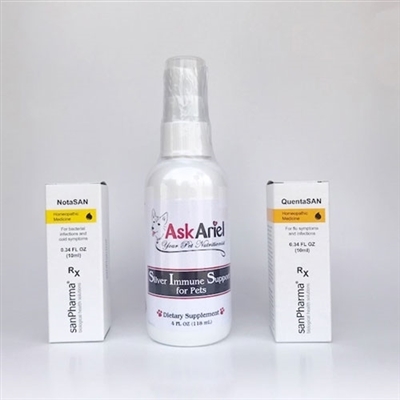

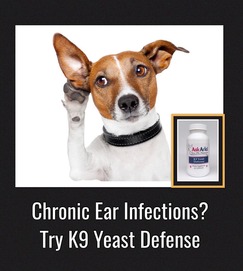
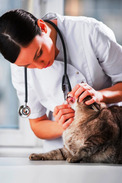
- Power Probiotic for Pets-essential for your pet's good health. Supports digestion, helps fight infection and enhances overall immunity. Very important if your cat has taken any antibiotics.
- K-9 Yeast Defense-contains natural anti-fungal ingredients that kill off yeast and help rebalance the intestinal tract.
- Amazing Omegas- A research-backed, powerful source of omega-3 nutrients that controls allergies. The best fish oil available for pets.
- AllerEaze-Pets with yeast tend to have allergies. To help reduce your pet's allergy symptoms, you need to do more than just kill off the yeast. By using AllerEaze along with the yeast protocol, you are giving your pet a natural antihistamine that helps calm down the allergic response.
- NotaSAN-Natural homeopathic formula that fights inflammation and infections. First line of defense for infections in cats. Can be used safely long-term to prevent recurrences. Use with QuentaSAN for best results.
- QuentaSAN - Natural homeopathic formula that fights redness and bacterial infections. Essential for pets that have autoimmune and viral conditions.
AllerEaze is also helpful for cats with stomatitis, an autoimmune condition where cats develop an allergic reaction to the plaque in their mouth. This painful disease results in red inflamed gums and mouth ulcers. Stomatitis is also referred to as "Teeth Plaque Allergy" so feeding cats a hypoallergenic diet along with using natural antihistamine AllerEaze to control the allergic response can help.
AllerEaze can help dogs with mast cell tumors because the quercetin suppresses the dog's histamine release. Many dogs get recurring tumors so using the AllerEaze as a natural antihistamine along with a hypoallergenic diet is helpful.
Is your pet itching, chewing and scratching due to seasonal allergies? Email us at Support@AskAriel.com and we will be glad to help!
 |
| Pumpkin |

QuentaSAN- Natural homeopathic formula that fights viruses and infection, especially targeting the lung and upper respiratory system. Autoimmune disorders in cats especially often involve underlying viruses so using the NotaSAN and QuentaSAN together is very effective in treating autoimmune disease in pets.




.JPG)




